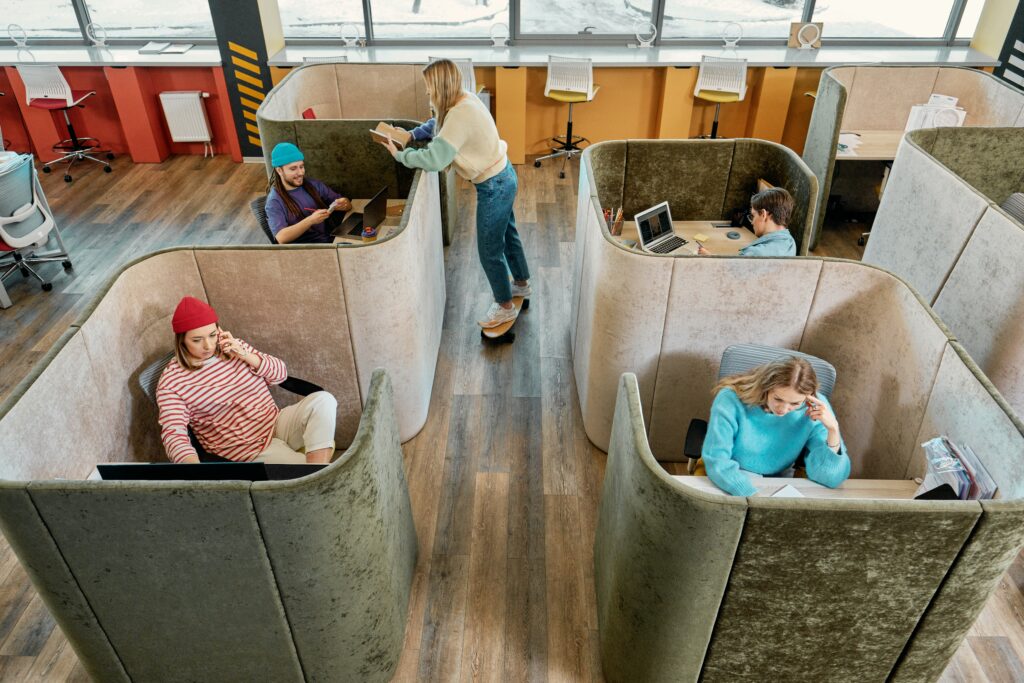
I’ve been that person, the career hoarder. Sucked into believing that busyness was a badge of honour. So busy being busy that I forgot what I was trying to achieve in my workdays. So focused on doing stuff that I forgot to check if any of it was actually of value.
I found the concepts of minimalism and intentional living when I was overwhelmed by busyness and had far more stuff than I needed. I found the physical stuff relatively easy to sort out. I’m not a particularly sentimental person so found decluttering pretty enjoyable. The results where great at home. I massively downsized my wardrobe and now find it really quick and easy to get dressed every day. I feel great in my clothes because all of them fit me. I very rarely lose anything now because everything has a home and I have a sensible amount of stuff which I use.
But, I very quickly realized that my issue was much less at home and so much more at work. All the things we associate with hoarding and excess were staring me in the face:
- I was keeping every email sent or received ‘in case I need it one day’
- I was overwhelmed with tasks and meetings but many weren’t adding any value
- I was using busyness as a mask against the world to hide my insecurities and imposter syndrome
- That tick on my to do list gave me the same dopamine hit as if I’d bought myself a little treat I didn’t need
Sound familiar?
I had separated work and home really effectively in my head, which was great in many ways for my mental well-being. But, the downside was that it hadn’t really occurred to me to apply the learnings from the things which were making my home life so much simpler and more intentional to my work. Once I did, I found I was able to be so much more effective and less stressed. I was delivering more and better and had time to be a better manager, coach and colleague.
Over the past year I’ve put in place systems and processes which allow me to embed minimalism in my job.
My top three tips for embracing minimalism at work are:
1. Do a digital (or paper) declutter.
Go through all your emails and files and delete anything which is no longer of use. You really don’t need hundreds of emails saying thank you (my new pet hate). Save things in ways that work for you, whether that’s folders or in archives which you can easily search. Once you’ve cleared everything, use rules to help you reduce the accumulation of new digital clutter. For example, deleting meeting responses. Set time aside on a regular basis to do a declutter. Things which are important and need to stay today will reach a point when they are no longer relevant.
2. Prioritize by importance and urgency
Get into the habit of prioritizing your to do list by importance and urgency. This is a well-loved approach based on the Eisenhower Matrix and popularized by Stephen Covey in The 7 Habits of Highly Effective People. Mark everything as either important or not important and urgent or not urgent then deal with them as appropriate:
- Important and urgent – do these straight away
- important and not urgent – plan these in
- Not important and urgent – delegate these
- Not important and not urgent – delete these.
3. Break the busyness narrative
This one is much more about changing your mindset and your language around work. Removing mental clutter is as important as removing physical clutter. When people ask you how you are, avoid saying ‘busy’. Sometimes the easiest way to change our internal narrative is to change how we talk about it with others. Being busy isn’t something to be proud of or aspire to. By changing the way you think about busyness, you’ll start to change the way you work. Think about sharing the important projects you are working on and what you are achieving instead.
Just these three small things can make a massive difference in letting go of so much of the clutter that fills our work lives. Applying a minimalist mindset in the workplace helps us to be so much more productive and to achieve more that matters.
In modern life we spend so many hours working, we should give them the same level of focus as our out of work lives. The two come together. So, if you are less stressed at work, you’ll be able to switch off and enjoy being at home. Building intention into what we do at work every day brings with it a level of control over our own lives.
Even within employment, we have the choice in how we operate even if the outcomes we need to achieve are set for us. By taking ownership of that and removing the mental clutter, we have the power to improve our job satisfaction and the positive impact our work has on our lives.
***
About the Author: Katherine is a senior leader, author, coach and speaker who focuses on how to build an intentional career and the positive impacts it can have on your life. She has a passion for helping people to find their purpose and see their own potential. Find more from her at Enikma.